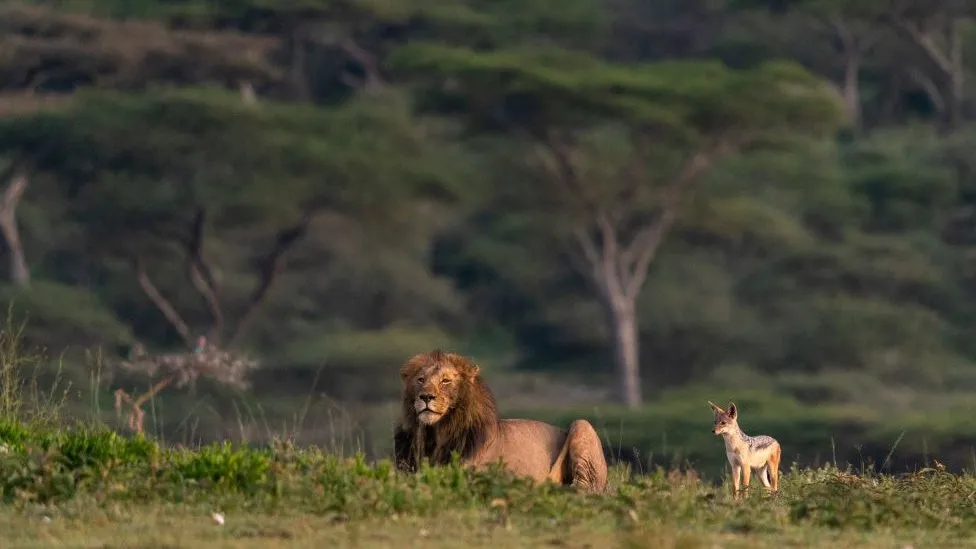Tanzania has signed a deal for one of East Africa’s biggest land-based carbon credit projects.
The project covers six national parks, spanning 1.8 million hectares (4.4 million acres).
Tanzania, which has forest resources of nearly 48 million hectares, has emerged as one of the leading African players in the global carbon credit trade.
It comes as world leaders are in Dubai for the COP28 summit aimed at finding ways to tackle climate change.
Carbon credits work like this: an organisation that pollutes can buy a credit which is worth one tonne of carbon dioxide.
The money paid by the organisation is meant to go towards carbon-lowering schemes, so for every tonne of carbon dioxide (CO2) emitted, the credit represents a tonne of CO2 that was captured.
In this way, the overall amount of (CO2) and other pollutants produced is supposed to stay the same, or even be lowered.
Live coverage: COP28 summit
A really simple guide to climate change
The new deal is an alliance between Tanzania’s national park management agency, Tanapa, and Carbon Tanzania, a locally based company.
Some of the revenue from the sale of carbon credits will go to Tanapa and local communities, Carbon Tanzania said on Thursday.
Aside from facilitating the trade in carbon credits, the project will also “focus on the protection, conservation, and enhanced management of these national park areas, safeguarding their natural ecosystems and vital wildlife resources”, the company added.
The six national parks designated for the project are Burigi-Chato, Katavi Plains, Ugalla River, Mkomazi, Gombe Stream and Mahale Mountains.
The project will receive additional funding from Mohammed Enterprises Tanzania Limited, an agricultural and manufacturing company owned by prominent Tanzanian businessman Mohammed Dewji.
In February, Tanzania entered a preliminary agreement for an even far bigger carbon credit deal, covering 8.1 million hectares, nearly 8% of Tanzania’s total land mass.
February’s agreement was entered with Blue Carbon, a UAE company that says it provides nature-based solutions and carbon removal projects using modern approaches.
In recent years, there has been an increase in carbon-offsetting companies taking control of land in sub-Saharan Africa for multi-year carbon-credit projects, which some critics say is a form of neo-colonialism.
Blue Carbon has been particularly criticised by environmentalists.
The company says its projects are done under strict regulation and benefit local communities. It also says that countries partner with it voluntarily.
The Emirati company has also signed Memorandums of Understanding (MoUs) relating to carbon credits with other African countries, including Liberia, Kenya, Zambia and Angola.
If finalised, these proposals could produce deals granting Blue Carbon control of massive areas of land in these countries for use in carbon credits production.
